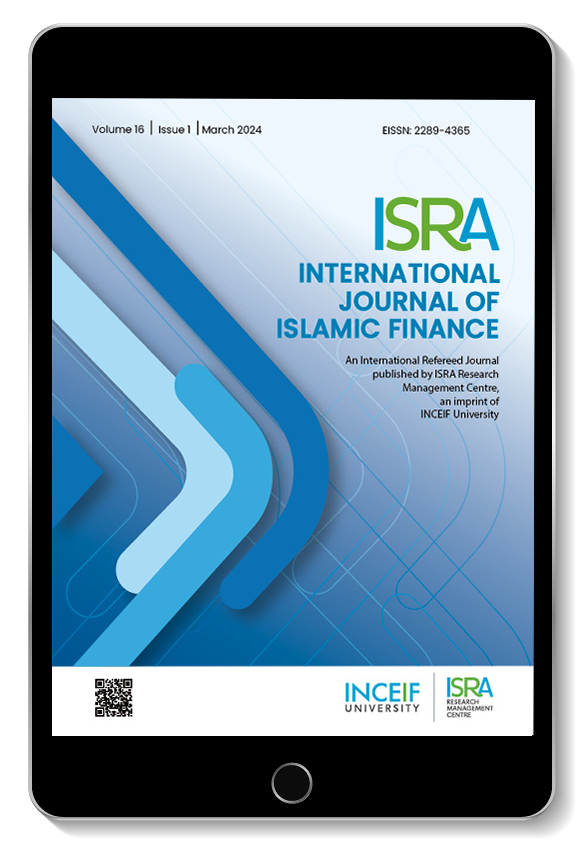The Legal Implications of Abandoned Digital Assets in Sharīʿah-Compliant Fintech Platforms
IF 2.8
Q2 BUSINESS, FINANCE
引用次数: 0
Abstract
Purpose — The recent surge in Sharīʿah-compliant fintech platforms has created an increasing volume of intangible digital assets of increasing value across emerging technological platforms. This phenomenon has generated a significant number of digital assets left behind after the demise of their owners. This paper provides a legal analysis of the implications of abandoned digital assets in Sharīʿah-compliant fintech platforms. It seeks answers to two central research questions: what are the Sharīʿah and legal implications of digital assets after the passing of the owner? How can the existing Sharīʿah-compliant fintech platforms prevent uncertainty over digital assets? Design/Methodology/Approach — This is a conceptual paper which adopts a qualitative analysis of both primary and secondary sources from existing journals and regulatory instruments in Islamic finance jurisdictions to explore the gaps in the law regarding digital assets and regulations regarding unclaimed money. The paper further compares the approaches adopted in Malaysia and Saudi Arabia in regulating digital assets and unclaimed moneys. Findings — The paper finds that there is scope for the administration of digital assets in both regulated and unregulated Sharīʿah-compliant fintech platforms. Similarly, the adoption of e-KYC that complies with the Sharīʿah ethos is essential to ensure that digital assets are not lost upon the account holder’s demise. The legal right and title of the account holder and legal heirs can only be protected through the operation of digital assets regulation in a Sharīʿah-compliant fintech environment. Originality — This paper is of value to administrators and legal heirs of account holders in fintech environments. It recommends measures to prevent intestacy and uphold the account holders’ and legal heirs’ intergenerational property rights and financial benefits. Research Limitations/Implications — As a conceptual paper, the attitude of digital asset users is not examined due to the absence of quantitative or qualitative data on devolution of digital assets. Practical Implications — Although this study focuses on the implication of digital assets for Sharīʿah-compliant fintech platforms, the findings may well have a bearing on policymakers, legal practitioners, and administrators of estates in the management of emerging asset classes. Article Classification — Conceptual paperSharīʿah合规金融科技平台中废弃数字资产的法律含义
目的——最近Sharīah合规金融科技平台的激增,在新兴技术平台上创造了越来越多价值不断增加的无形数字资产。这一现象产生了大量所有者去世后留下的数字资产。本文对Sharīah合规金融科技平台中废弃数字资产的影响进行了法律分析。它寻求两个核心研究问题的答案:所有者去世后,数字资产的Sharīah和法律含义是什么?现有的Sharīʿah合规金融科技平台如何防止数字资产的不确定性?设计/方法/方法——这是一篇概念性论文,对伊斯兰金融管辖区现有期刊和监管工具的主要和次要来源进行了定性分析,以探索有关数字资产的法律和有关无人认领资金的法规中的差距。本文进一步比较了马来西亚和沙特阿拉伯在监管数字资产和无人认领资金方面采取的方法。调查结果——该论文发现,在受监管和不受监管的Sharīah合规金融科技平台中,数字资产的管理都有空间。同样,采用符合Sharīʿah精神的e-KYC对于确保账户持有人死亡时数字资产不会丢失至关重要。只有在符合Sharīʿah的金融科技环境中,通过数字资产监管的运作,才能保护账户持有人和合法继承人的合法权利和所有权。原创性——本文对金融科技环境中的账户持有人的管理者和合法继承人具有价值。它建议采取措施防止无遗嘱继承,维护账户持有人和合法继承人的代际财产权和经济利益。研究局限性/含义——作为一篇概念性论文,由于缺乏关于数字资产权力下放的定量或定性数据,因此没有对数字资产用户的态度进行研究。实际意义——尽管这项研究侧重于数字资产对Sharīah合规金融科技平台的影响,但研究结果很可能对新兴资产类别管理中的政策制定者、法律从业者和遗产管理者产生影响。文章分类——概念论文
本文章由计算机程序翻译,如有差异,请以英文原文为准。
求助全文
约1分钟内获得全文
求助全文
来源期刊

ISRA International Journal of Islamic Finance
BUSINESS, FINANCE-
CiteScore
3.40
自引率
17.40%
发文量
18
审稿时长
20 weeks
期刊介绍:
It is the aspiration of the editorial committee that IJIF achieves the highest rank in quality and substance. It is thus our aim that the journal be carried in the Thompson Reuters’ ISI and Scopus databases. By ensuring high standards in articles published in Islamic finance we ensure that further innovation and research is carried out and promoted in the Islamic finance industry and academia. IJIF publishes 2 issues per annum.
 求助内容:
求助内容: 应助结果提醒方式:
应助结果提醒方式:


